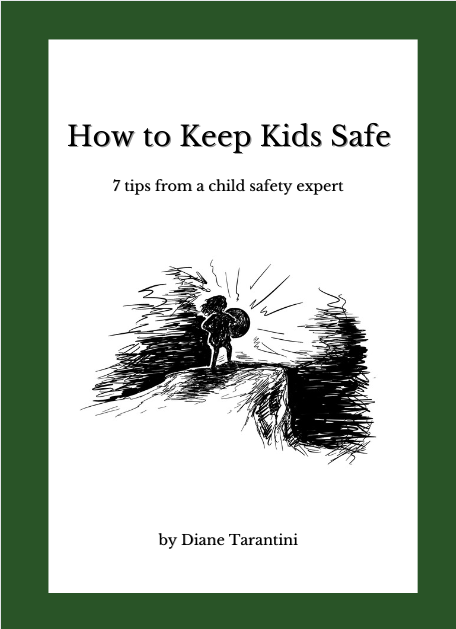If only…
“If only we had more money.” Just ten years ago, I was saying that line on a weekly basis since there was always more week than money. That all changed when Tony Bear and I gave Financial Peace a chance.
Dave Ramsey to the rescue
Financial Peace is a program (and a book*) by Dave Ramsey. There are classes held all over the country as well as books and a helpful website (daveramsey.com) or, you can just keep reading this column since I’m about to give my Cliff Notes version on the subject.
Financial peace is like a warm soft blanket.
For me, one of the main advantages of the Financial Peace program has been a feeling of security. When Ramsey wrote that women are wired to desire security, a feeling of relief washed over me. I’d previously viewed my yearning for security as similar to greed, but it’s actually a craving for safety.
Make a list. Check it twice.
Some of Ramsey’s practices you could try today. For instance, a spending journal. Ramsey recommends using a notebook to keep a 30-day record of every dollar (and cent, if you’re super serious) your family spends via cash, check, or charge. Groceries, gasoline, and Chez Target. Meals out plus tips. Mortgage or rent, utilities, credit card payments. All those ATM withdrawals.
This record quickly reveals areas of concern. Frequent trips to the mall, McDonald’s, or Lowe’s. Amazon.com. All those ATM withdrawals.
Check(book) please
If like me, you still use a checkbook, from now on, only use checks to pay bills. Your checking account will no longer be your personal frolic-fund. To take this one step further, cut up your ATM card. I know it hurts. Do it anyway. It will make balancing your checkbook way easier.
The envelope(s) please
At the Dollar Store, buy a couple of accordion coupon files. These will be your “spending envelopes.” Give each slot a category. Here are the ones Tony Bear and I used initially: groceries, gas, clothing, school, gift, entertainment, and vacation. Later in life we added a college category.
The Wedding Planner
Later still, we created a wedding “envelope.” Everyone recommends a college fund, but no one mentions a wedding fund (for each daughter). Start saving now, people. According to www.costofwedding.com, the average cost of a wedding in America is $26,720.
Or, you can do what my dad did: Give your girls $5,000 if they elope.
Better save than sorry
Although I understand it isn’t always possible, consider tricking yourself into saving by having a small amount of money direct-deposited from each paycheck into savings.
A friend has a small amount deposited each week into a credit union account in a different town so she has to physically drive there in order to withdraw funds from that account. It’s so inconvenient, the balance grows.
When it’s gone, it’s gone.
Each pay cycle, a set portion of your paycheck goes into your checking account to pay bills. The rest you will cash and distribute into your “spending envelopes.” Before you go clothes shopping, visit your clothing “envelope” for the funds. Ditto with grocery shopping, filling up your gas tank, etc..
When an envelope is empty, guess what? You stop spending in that category. This teaches you to “live within your means.”
Occasionally you may find it necessary to “rob Peter to pay Paul.” Whenever I borrow money from one envelope to pay for an expenditure in another, I tuck an I.O.U. note inside the appropriate envelope to remind me to reimburse it at a later date.
Slice and dice then make a snowball
And now the hard part. Dave recommends cutting up all credit cards because, as Proverbs 22:7 says, “…the borrower is slave to the lender.” Having been there, done that, I totally agree. This isn’t just us. According to time.com, the average American household owes $16,000 in credit card debt.
So how the heck do you get out of credit card debt? Do what Tony and I did, utilize Ramsey’s “Debt Snowball Method.” Read exactly how to do it here.
In the interest of total transparency, I will tell you that after Tony and I paid off our credit cards, we opted to keep one active in order to accumulate airline miles. To avoid returning to Debt-opia, we pay off the card’s balance each month.
Money, especially cash, talks.
Going forward, you will conduct most of your financial transactions with cash from your spending envelopes. Cash is harder to part with because it is visually finite. When it’s gone, it’s gone. That’s why credit cards are so dangerous. They give the illusion of unlimited resources. Don’t believe it. It’s a trap, a lying maw.
Ramsey also believes cash has a power credit cards do not. He believes that often the manager of a car lot, furniture store, or jewelry shop may be persuaded to negotiate in the presence of cash. Tony Bear says this is probably true since stores typically pay up to 4% of each sale to the credit card company.
Giving is good for you.
Finally, Ramsey and I both recommend donating on a regular basis to the cause(s) of your choice: your house of worship, the Red Cross, or the Salvation Army, for instance. If the principle of “you reap what you sow” is true, your generosity with the world will someday be reciprocated. Time and again, our family has experienced this truth.
Getting financial peace is like getting a raise.
Going in to the Financial Peace course, I was certain it would feel like money-jail. Instead, the total opposite was true. With a few guidelines in place, it felt like our family received a significant raise.
How about you? Do you have any super awesome money tips? Do tell!
*Affiliate link.







